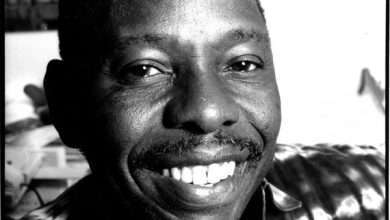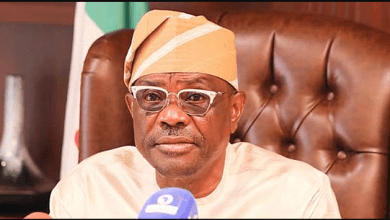The Double Burden of Speaking Truth to Power Without Legal Safety Nets – By Anton Stravinsky

While whistleblower protections are steadily improving across parts of the Global North, those who dare to expose corruption, fraud, and human rights abuses in the Global South often find themselves dangerously exposed.
In nations where legal frameworks are weak, authoritarianism is on the rise, and institutional corruption is deeply entrenched, whistleblowers often face an uphill battle alone.
This June 23, World Whistleblower Day casts a sobering light on those who have sacrificed their freedom, careers, and sometimes their lives to reveal truths that governments and corporations work hard to conceal.
Their stories are often overlooked in international media, and the legal protections available in their home countries are either ineffective or nonexistent.
A Structural Imbalance in Global Protections
International legal structures tend to favour whistleblowers in developed nations with established legal precedents. In contrast, countries in Africa, Latin America, the Middle East, and Southeast Asia often criminalize dissent, blur the line between national interest and political loyalty, and use outdated sedition laws to silence voices.
According to Transparency International’s 2024 Global Corruption Barometer, over 71% of whistleblowers in low- and middle-income countries experience direct retaliation — including job loss, threats to personal safety, imprisonment, or exile. In many of these nations, whistleblowing is framed not as public service but as treason.
The Cost of Speaking Up: Life, Liberty, and Limbo
Unlike in Western countries, where high-profile whistleblowers might face media trials and legal battles, in the Global South, consequences are more immediate and violent. Surveillance, kidnappings, enforced disappearances, and targeted assassinations are documented realities.
Case Study: Rafael Marques de Morais – Angola
In 2011, Angolan journalist and activist Rafael Marques published a damning report titled Blood Diamonds: Torture and Corruption in Angola, accusing military generals of complicity in torture and killings in the diamond-rich Lundas region.
Though Marques was internationally celebrated and awarded by human rights organizations, he was prosecuted in Angola for “slander against public authorities.” After multiple detentions and legal threats, he was eventually convicted, though he received a suspended sentence.
His case remains a landmark in the Global South, not because justice prevailed, but because retaliation was swift, and legal protections were virtually nonexistent.
Western Silence, Corporate Complicity
Multinational corporations operating in the Global South often depend on political relationships, private security forces, and opaque subcontractors. Whistleblowers who expose human rights violations or environmental damage caused by these firms usually find that the companies deny responsibility, citing distance, jurisdiction, or contractual loopholes.
Case Study: Ken Saro-Wiwa – Nigeria
Perhaps one of the most infamous examples is Ken Saro-Wiwa, an environmental activist who led the Movement for the Survival of the Ogoni People (MOSOP) in the Niger Delta. He spoke against Shell Oil’s ecological degradation of Ogoniland.
In 1995, Saro-Wiwa was executed by Nigeria’s military regime following a sham trial. Shell was widely criticized for complicity, though the company denied direct involvement. A later settlement in U.S. courts saw Shell pay $15.5 million to Saro-Wiwa’s family, without admitting guilt.
The message was clear: exposing corporate wrongdoing in the Global South can cost lives, and Western governments may only act after the damage is irreversible.
Legal Protections: Where They Exist, Where They Fail
Some Countries in the global South have enacted whistleblower protection laws, often in response to international pressure. But implementation is inconsistent, and enforcement is weak.
- India’s Whistleblowers Protection Act (2014): Passed to protect individuals who expose corruption, it lacks a witness protection mechanism and has been used infrequently and effectively.
- South Africa’s Protected Disclosures Act (2000): Offers limited protection, but retaliation remains common, especially in state-owned enterprises.
- Brazil’s Law 13.608 (2018): Encourages anonymous tips through rewards but provides little defence against employer retaliation.
In authoritarian states, these laws often serve as window dressing. In democratic but institutionally weak nations, they’re underfunded, poorly publicized, or ignored altogether.
Whistleblowing and the Media: Allies or Amplifiers of Risk?
In environments with strong press freedom, whistleblowers may find support from independent media. But in many parts of the Global South, state-controlled outlets, censorship boards, and media monopolies make the press a tool of suppression.
Case Study: Daphne Caruana Galizia – Malta
While not technically part of the Global South, Malta reflects the perilous nexus of politics, finance, and impunity. Galizia investigated offshore banking, government corruption, and organized crime until her assassination by car bomb in 2017. Her murder exposed international banking scandals and led to high-profile resignations, but also highlighted the vulnerability of investigative voices without systemic protection.
For Global South whistleblowers, even seeking out foreign media can be considered “collusion with foreign powers” — a charge used in countries like Egypt, Ethiopia, and the Philippines.
Cross-Border Exile: The Whistleblower’s Only Escape?
Fleeing one’s country is often the last resort for whistleblowers in the Global South, but exile comes with legal and logistical complications.
Asylum claims based on whistleblower persecution face inconsistent treatment. The 1951 Refugee Convention doesn’t explicitly recognize whistleblowing as a protected activity.
Some EU nations, Canada, and the U.S. interpret the principle of “membership in a particular social group” to include whistleblowers; however, this interpretation is discretionary and subject to political considerations.
Amicus International Consulting has observed a rise in professionals from the Global South — including auditors, lawyers, engineers, and government employees — seeking international relocation assistance following retaliation.
\“Many arrive with evidence in hand but no clear legal path,” said one Amicus employee. “We’ve had to develop case strategies involving human rights law, media exposure, and legal anonymity.”
The Role of NGOs and Legal Clinics
Non-governmental organizations have stepped in where governments fall short. Groups such as Transparency International, Human Rights Watch, and the Government Accountability Project provide critical support. Yet their reach is limited by geography, language barriers, and funding priorities.
Regional organizations such as Africa’s Whistleblowers Protection Initiative and Latin America’s Fundación Karisma are doing vital work but remain under-resourced.
One crucial development is the creation of cross-border encryption tools, such as SecureDrop, Signal, and ProtonMail, which have become lifelines for whistleblowers seeking to share sensitive information with international journalists and lawyers without detection.
The Risk to Families: Collective Punishment as Deterrence
A defining feature of whistleblower retaliation in the Global South is the use of collective punishment. Families of whistleblowers may be evicted, detained, surveilled, or attacked.
Case Study: Guatemala’s CICIG Whistleblowers
In 2019, Guatemala dismantled the UN-backed International Commission Against Impunity (CICIG). Whistleblowers involved in investigations were forced underground. One senior investigator’s home was raided, and her children were threatened. Legal immunity was revoked retroactively.
Many fled to the U.S. or Canada, but family members left behind faced reprisals. This tactic of retaliating against a whistleblower’s network creates a chilling effect, silencing potential informants across civil service, journalism, and academia.
Gender-Based Retaliation: A Dual Threat for Women
Women whistleblowers in the Global South often face both professional punishment and gendered harassment. Discrediting female voices through personal attacks — accusing them of impropriety, instability, or moral failing — is a common tactic.
Case Study: Stella Nyanzi – Uganda
A feminist scholar and activist, Nyanzi used public platforms to criticize government corruption and mismanagement. She was imprisoned for “cyber harassment” after calling out misappropriation of health funds. During her trial, prosecutors attacked her morality more than her message.
Despite global advocacy, she remained imprisoned until international pressure secured her release. Her case exemplifies how gender and geography can amplify the risk of whistleblowing.
What the International Community Can Do
- Standardize asylum procedures for whistleblowers as a specific protected class.
- Condition foreign aid and trade agreements on demonstrable improvements in whistleblower protections.
- Fund local journalism and civil society in the Global South to amplify and protect whistleblower disclosures.
- Create legal safe havens and temporary relocation programs for high-risk whistleblowers.
The burden of ethical resistance should not fall solely on the shoulders of the brave. Institutions in the Global North must do more than offer moral support; they must provide concrete protection.
Case Study: Amicus’ Role in Legal Relocation
In 2024, a Central African financial auditor exposed procurement fraud tied to both local officials and a European firm. When police began monitoring her home, she contacted international NGOs, but none had jurisdiction.
Amicus International Consulting successfully facilitated a cross-border legal identity change, relocation to a country with robust legal protections, and established encrypted legal communication with investigators. While her case remains sealed for safety, her evidence led to indictments across three continents.
“This is the kind of work we need more of,” said a legal ethics advisor. “Without Amicus and a handful of others, these stories are buried, and the wrong people stay in power.”
Final Word: Bravery Without Backup Is a Global Failure
For every high-profile Global North whistleblower who makes headlines, there are dozens in the Global South whose names we’ll never know — disappeared, discredited, or driven to silence.
June 23 should serve not just as a day of remembrance, but as a policy checkpoint. Whistleblowers from the Global South are not rare; they are more vulnerable, more isolated, and more likely to pay the ultimate price for truth.



